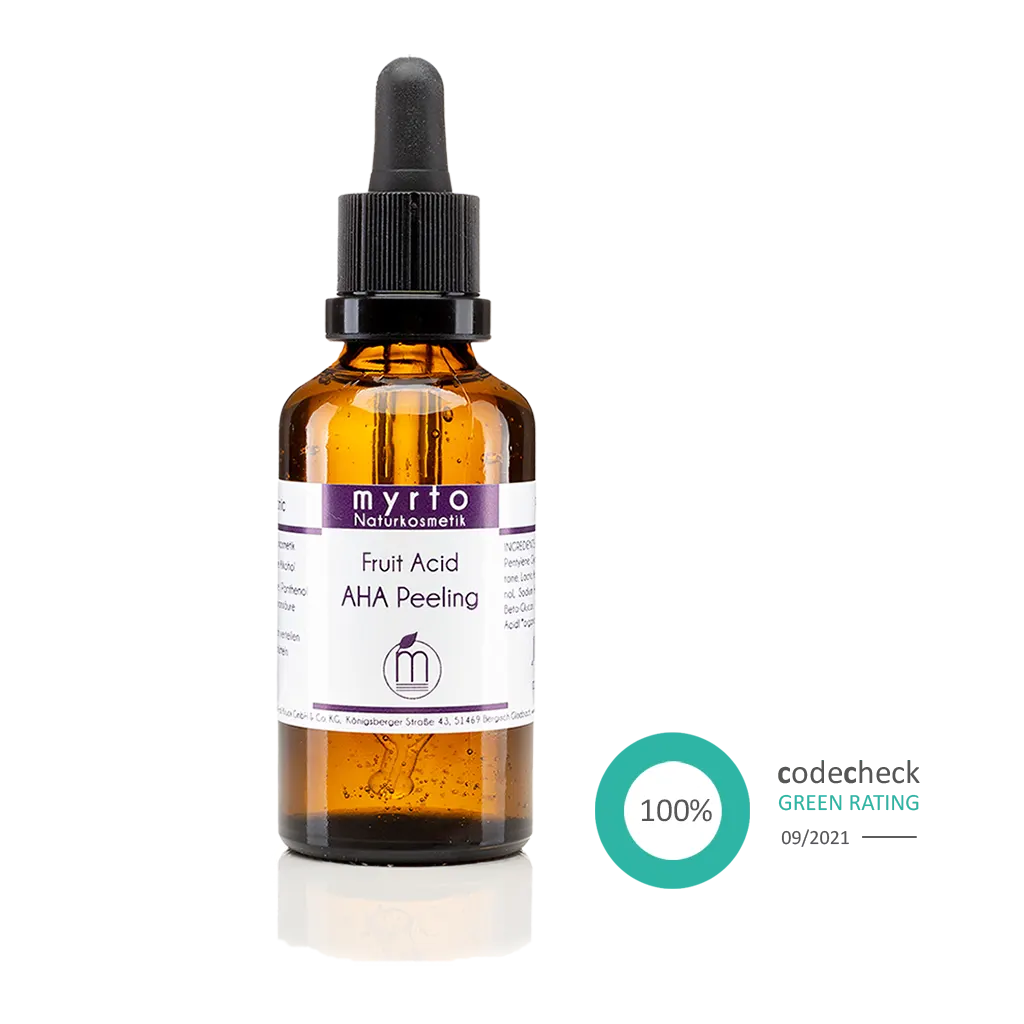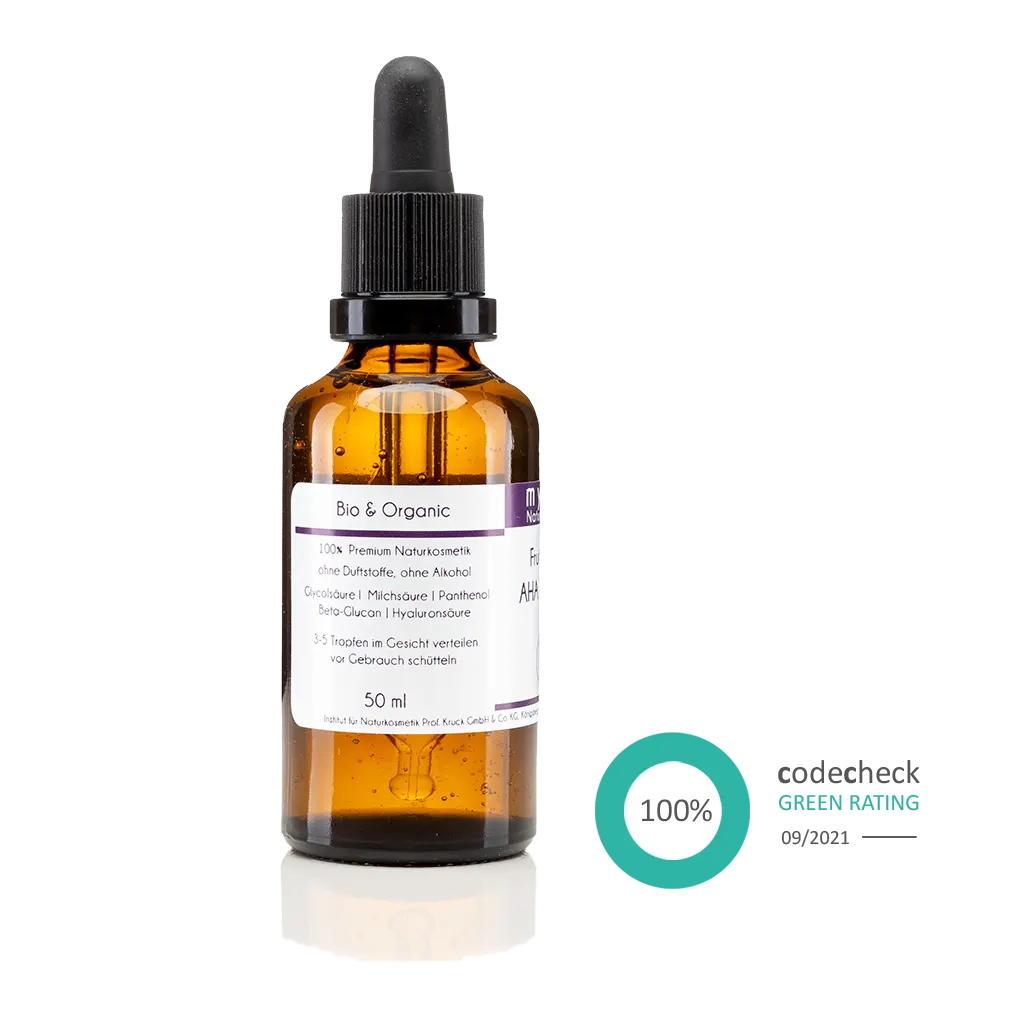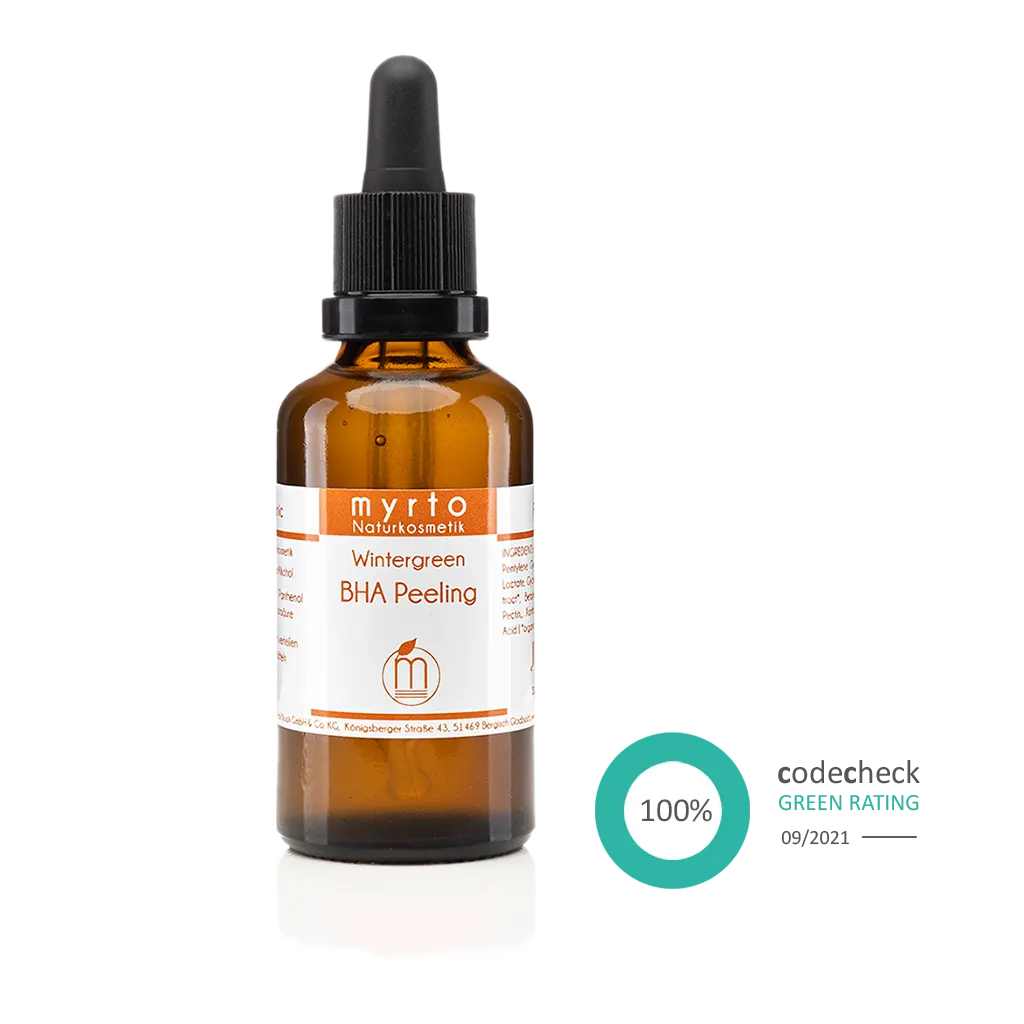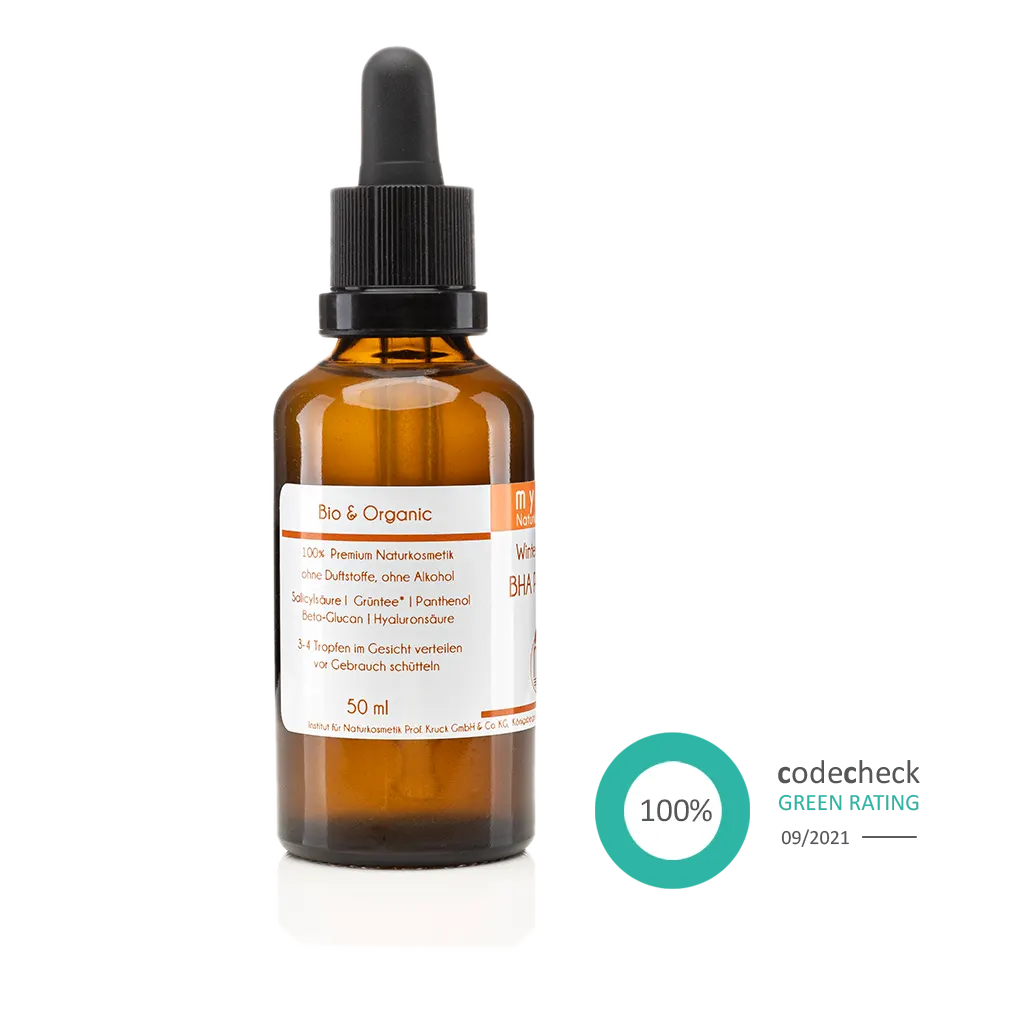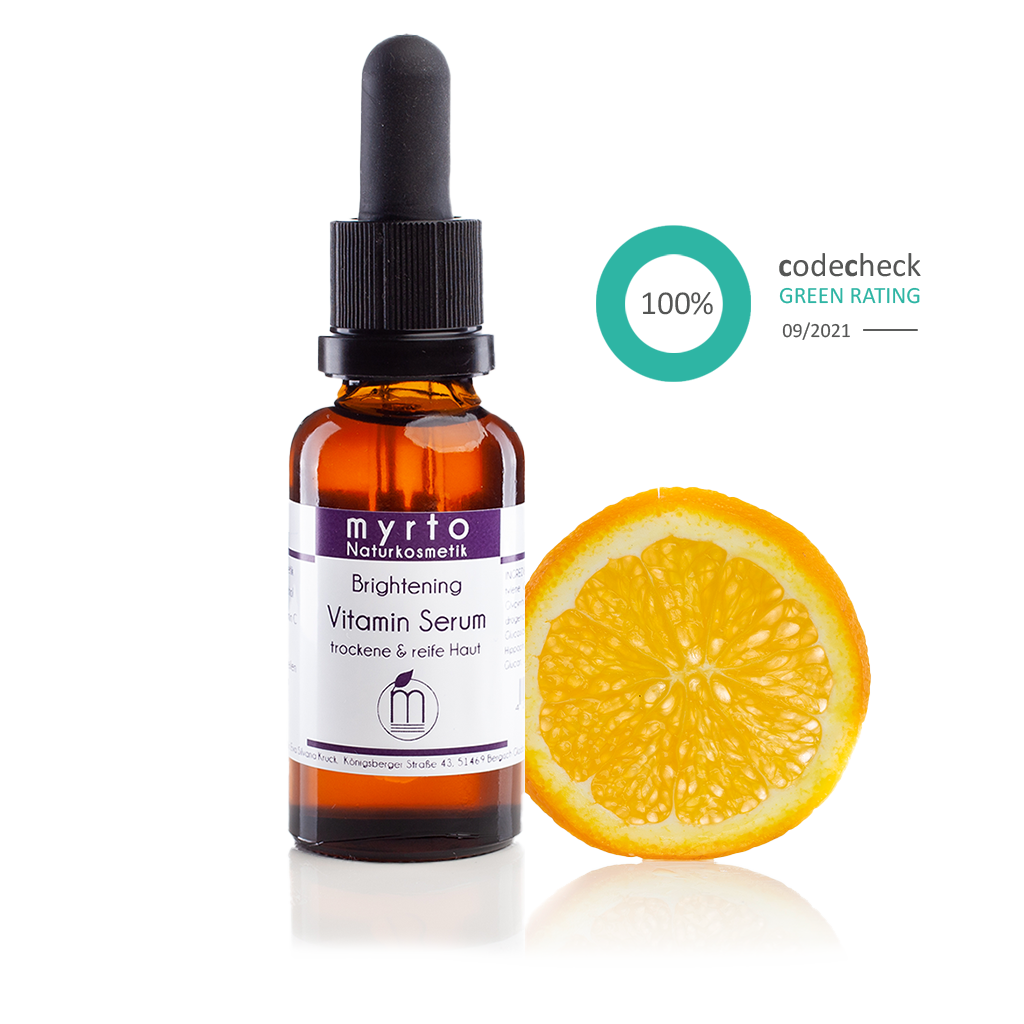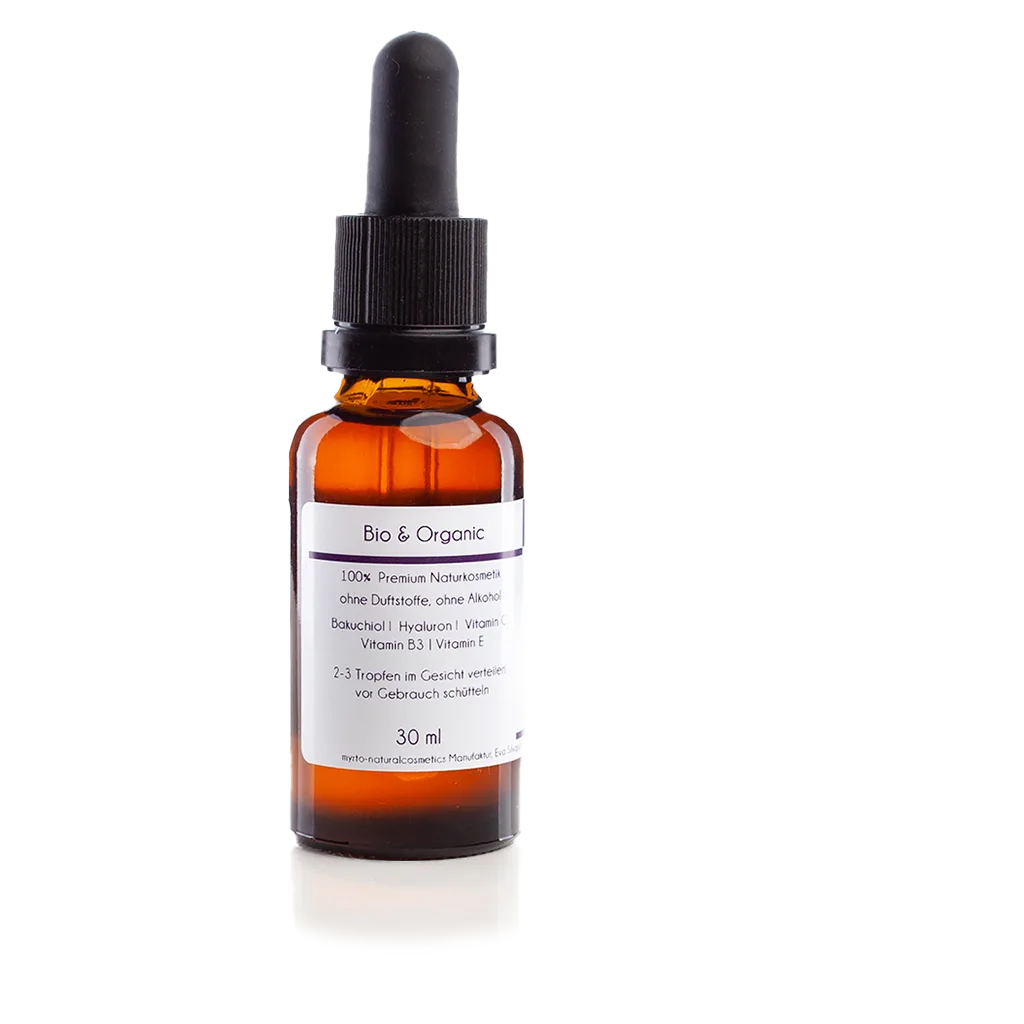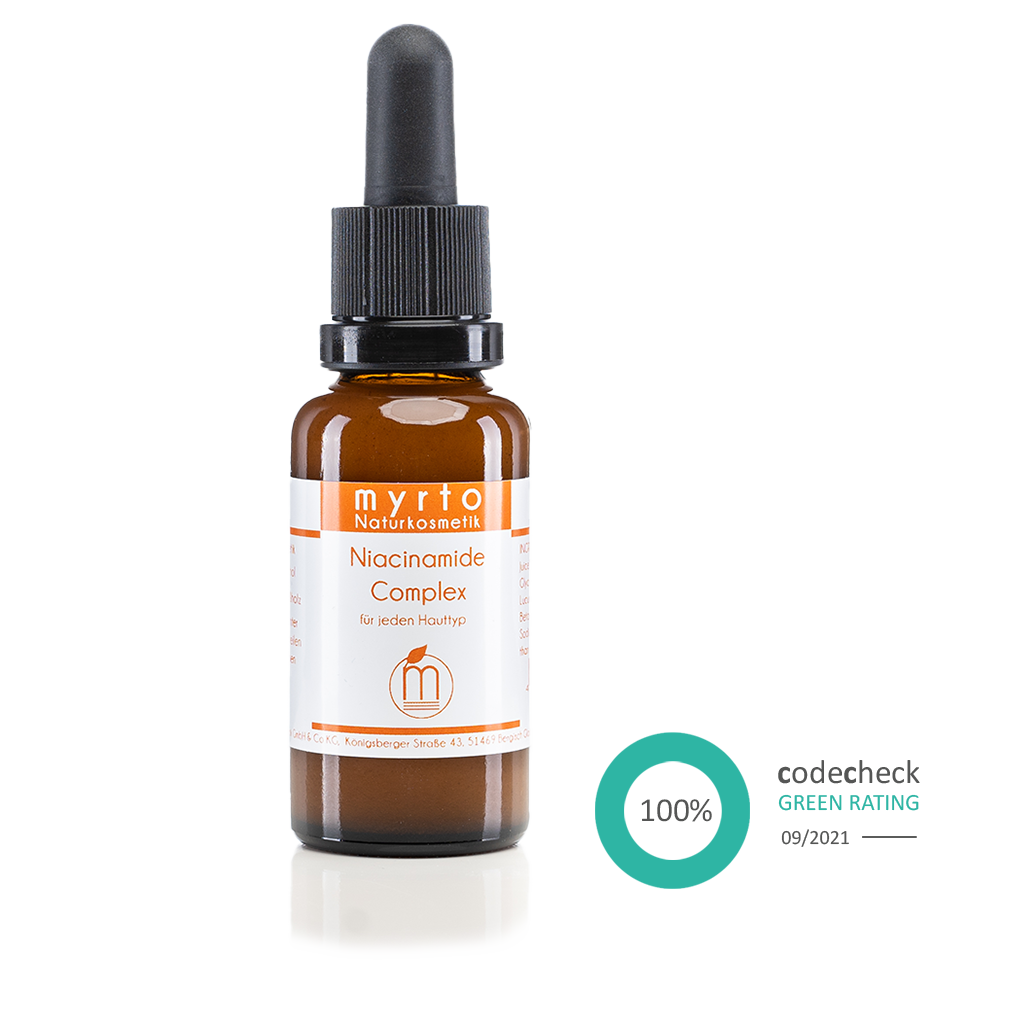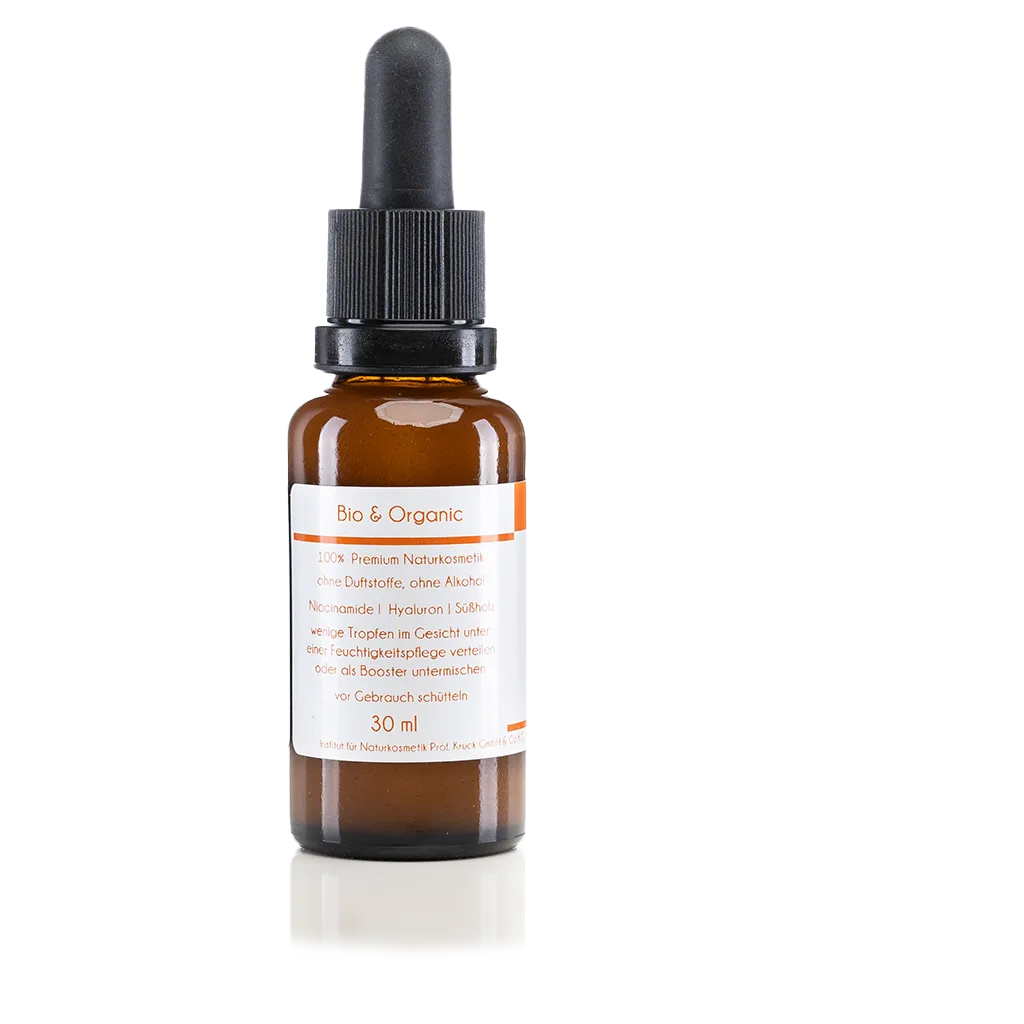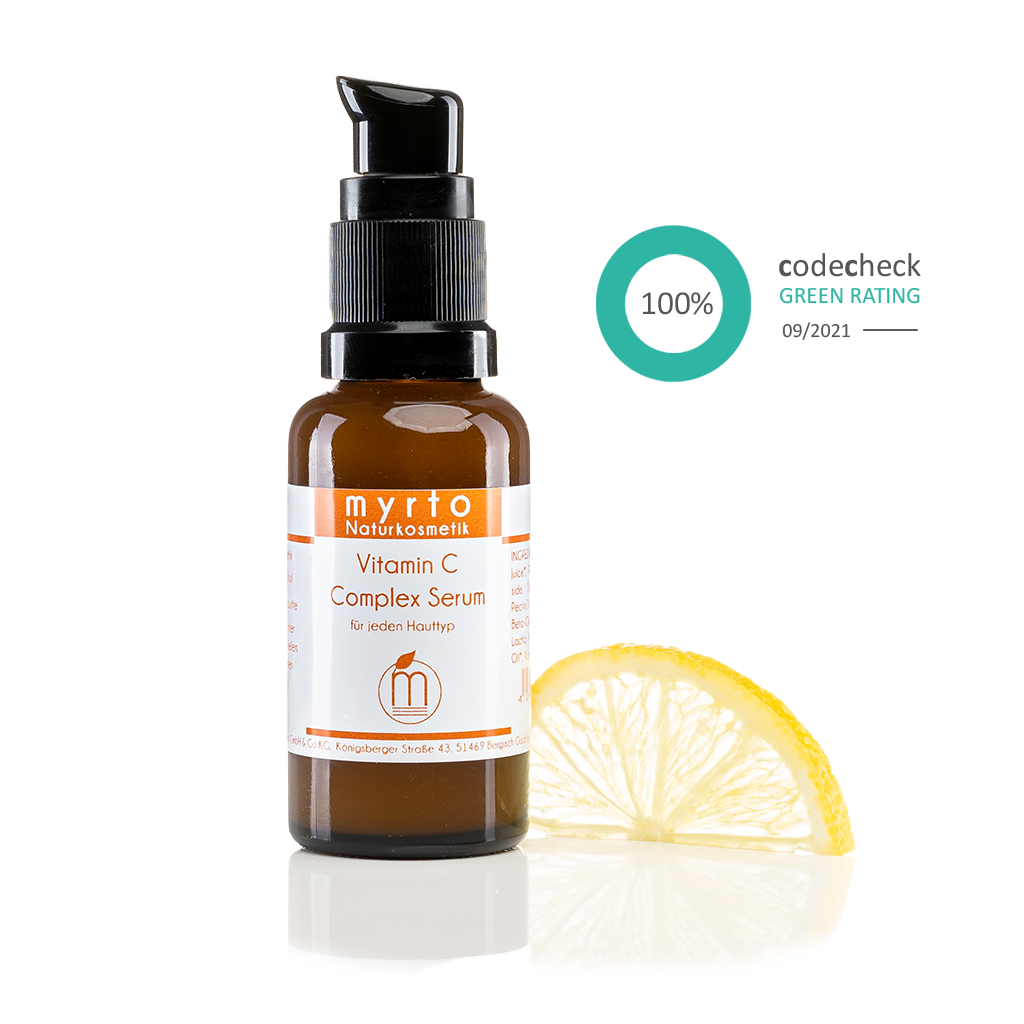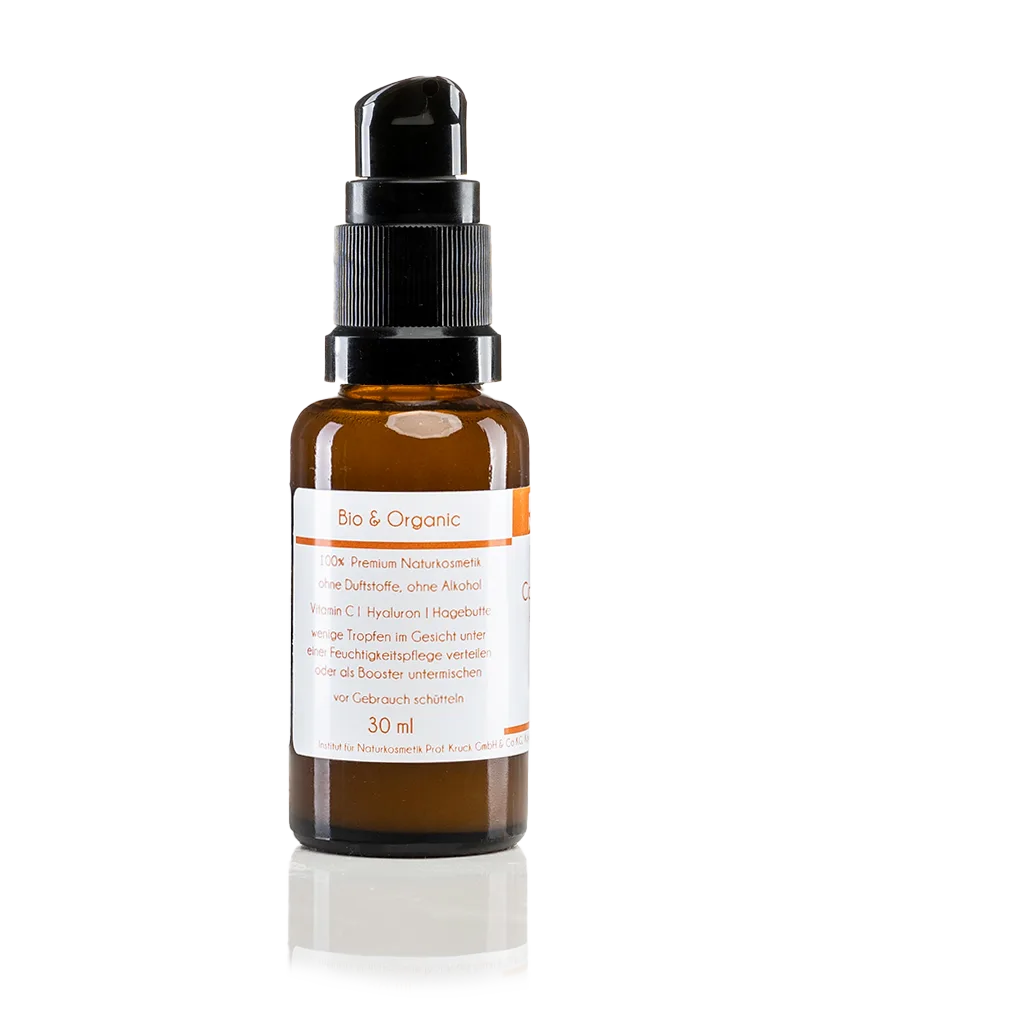Filters
50ml
BHA Peeling - with 2% vegetable salicylic acidSalicylic acid peeling gel against pimples and blackheadsPigment spots & acne scars: causes & gentle lightening
Gentle care for dark spots and acne scars: With vitamin C, bakuchiol, and niacinamide – for a more even complexion without irritation. Free from irritating additives, ideal for sensitive skin. Brighten and soothe the complexion – completely naturally.
What are pigment spots and how do they arise?
Pigment spots are discolorations on the skin that make it appear irregular. While they are generally harmless, they can be cosmetically disturbing. Certain pigmentary disorders should be examined regularly by a dermatologist to detect serious conditions such as skin cancer early.
Causes and types of pigment spots
Pigment spots are caused by increased production of the skin pigment melanin, often as a result of sun exposure or hormonal changes. The main types of pigment spots are:
- Age spots (solar lentigines) : These brown or dark spots appear primarily on areas of skin frequently exposed to the sun, such as the hands, décolleté, and face. They usually develop after long-term UV exposure and are considered a sign of premature skin aging.
- Freckles (ephelides) : These genetically determined, reddish-brown spots appear in childhood and become more pronounced during the summer months due to sun exposure. Unlike other pigment spots, freckles are often considered aesthetically pleasing.
- Melasma : These symmetrical discolorations, which usually appear on the nose, forehead, and upper lip, are triggered by hormonal influences. Causes can include pregnancy, hormonal contraceptives, or hormonal changes due to discontinuing birth control pills.
- Drug- and cosmetic-induced hyperpigmentation : Some cosmetics and medications contain ingredients that photosensitize the skin. This can result in increased melanin production and thus hyperpigmentation after sun exposure.
What are acne scars and how do they arise?
Acne marks are scars or discolorations that develop as a result of inflammatory acne. If the skin doesn't fully regenerate after inflammation caused by pimples or blackheads, hyperpigmentation or scarring often remains.
Types and causes of acne scars
- Hyperpigmentation : These dark or reddish spots occur when the skin produces excessive melanin following inflammation. They can remain after a pimple clears and often take months to years to fade.
- Scarring : In addition to discoloration, scarring can also occur, especially if the body produces too much or too little collagen during healing. This can lead to dimpling or bulging of the skin and make it appear uneven.
Lighten pigment spots and acne scars in a skin-friendly way
To treat pigment spots and acne scars gently, it is important to use the right methods:
- Home remedies like lemon juice : Although lemon juice is often recommended as a natural bleaching agent, it should be avoided. Its acidic properties dry out the skin, causing irritation and itching, and increasing sensitivity to UV radiation. Furthermore, ingredients like furocoumarins, when combined with sunlight, can trigger phototoxic reactions and further pigmentation.
- Dermatological treatment methods : Chemical peels, laser therapies, microneedling, and dermabrasion are among the most effective methods for removing pigmentation spots and acne scars. Dermabrasion mechanically removes the top layer of skin, but requires experienced application and aftercare.
Gentle and natural ingredients for the treatment of pigment spots and acne scars
For gentle and skin-friendly lightening, natural active ingredients are an optimal alternative to more aggressive methods. The following ingredients have proven effective in lightening hyperpigmentation:
- Ascorbyl Glucoside (Stabilized Vitamin C) : Vitamin C reduces oxidative cell damage in the skin, supports collagen formation, and reduces excessive melanin production. Ascorbyl Glucoside, a stabilized form of vitamin C, is particularly gentle and well-suited for sensitive skin.
- Niacinamide (Vitamin B3) : Known for its soothing and anti-inflammatory properties, niacinamide promotes skin regeneration and evens skin tone, which is especially effective for acne scars.
- Bakuchiol : This plant-based retinol alternative has anti-inflammatory properties and reduces melanin production without the side effects of retinol. Bakuchiol is very well tolerated by sensitive skin and has proven effectiveness in treating hyperpigmentation.
- Licorice root extract : This natural active ingredient has brightening and soothing properties. It reduces melanin production and is ideal for treating dark spots and redness.



